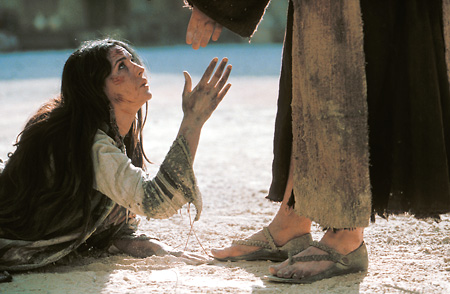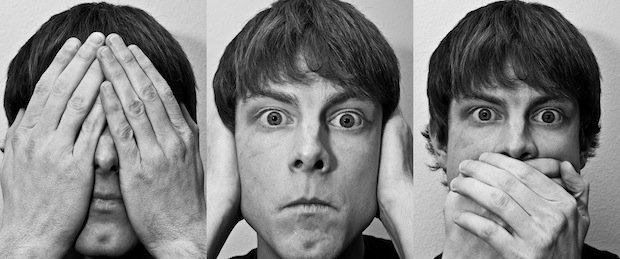I'll just leave this here, shall I.
The internets are abuzz with Hobby Lobby hate. And Hobby Lobby pride. And Hobby Lobby what the hell are they on about this time. And so forth.
The contraception provisions of the HHS coverage mandate provoked a number of lawsuits, primarily of course from employers such as the Hobby Lobby who object to paying for contraception on religious or moral grounds. The Supreme Court ruled today that the state could not compel employers to provide coverage for contraceptive services.
Christians are to be found on both sides, vehemently decrying and vociferously supporting the ruling, and making remarks about the qualities of a Christian business, on this subject and others. A few thoughts:
1. The women's rights/reproductive health angle doesn't really work as an argument in favor of the original HHS requirements. It is perfectly possible to maintain that the government has no business dictating what does or doesn't happen in people's bedrooms, provided nobody winds up dead or unleashing Gozer the Gozerian. Both of which phenomena, strictly speaking, are as undesirable outside the bedroom as inside it.
Despite vaguely resembling Justin Timberlake, this entity is not bringing sexy back.
Where the argument becomes sticky is when we start saying that the state, or an employer, has an obligation to subsidize things that happen in the bedroom or to eliminate their consequences. And the brute fact is, whether we think it wrong or right, that's what contraception is: making sure that the normal consequences of sex won't happen.
Even referring to this as a matter of reproductive health is at best ambiguous. The issue of sexually transmitted diseases is an issue of health, of course; but treatments and vaccinations for those aren't, so far as I know, what's at stake here -- it's contraceptives that are at stake, i.e. things whose express purpose is to prevent pregnancy. And pregnancy, even if it is unwanted or objectively a terrible idea right now, is not a disease.*
If this were, for instance, a question of people wanting anti-pregnancy measures to be available to rape victims, the conversation would be pretty different, but so far as I'm aware that too is on the list of "not the main topic" stuff here. What's being demanded is employer-covered access to contraceptives so that people can engage in an elected behavior free of consequence, not a necessity to the normal functioning of the body -- indeed, its whole purpose lies in preventing the normal functioning of one system of the body. And, while I don't propose to criticize that elected behavior here, I would point out that it seems inappropriate to make other people (whether we speak of the employer or the taxpayer) fiscally responsible for one's own free choices in pursuit of non-essentials.
The comparison of cosmetic surgery, which has been raised by some writers on the subject,** seems to me a good one. No one need cavil at the idea that some people could, for lack of a better way of putting it, need cosmetic surgery; say, the veteran who comes back from war with half his face missing from a grenade explosion. But cases like this are clearly distinguishable from a general insistence that cosmetic surgery ought to be available to everyone as a right.
2. All the same, the brute fact is also that there is an inevitable inequality between men and women on this subject. To sum it up in a crude oversimplification, if people have sex and one of them gets pregnant (I'm going to assume for the purposes of discussion that this is more or less the old-fashioned sort of sex, in which at least one person of each gender is involved), the man can run away. The woman can't. And that is, by definition, unfair.
That it's inevitable is, I feel, a reply that rises a little too easily to Christian lips. That she should have been more responsible is a reply that rises altogether too easily to the lips of Pharisees everywhere.
God litters our lives with indulgences, letting us off the consequences of our sins; when He chooses not to do that, it isn't because the person who experiences consequences was worse than ourselves -- that is the chief point of the book of Job -- but is, in all likelihood, for reasons that we can barely guess and certainly not state with certainty. In any event, male irresponsibility is a lot easier to get away with, living as we do after both the Sexual Revolution and the demise of chivalry, and a lot of the insistence on a woman's right to contraceptives, or even to abortion, seems to be an attempt to level the playing field.
I would insist that these are, in fact, false solutions to the problem; but, whether I am wrong or right in thinking so, the problem of such inequality in our culture is a real one, and ought to be recognized and sympathized with, not just moralized at. A solution to the problem cannot stop there, but it must start there, because if it doesn't then I think it will not start at all.
3. Whether the Hobby Lobby and co. are jerks or not, this is, in fact, a religious liberty issue. No sensible person, I am sure, would want to deny that religious people can be incredible assholes. This is also an elected behavior, and one just as open to non-religious or irreligious people, but one does see it with depressing regularity. Even if we take the comforting view that this is largely a consequence of the media manipulating the facts at their disposal and presenting the worst face of Christianity, or religion in general, with unjust persistence, it is nonetheless depressing that they've got that much material to work with.
Nevertheless. Whether the plaintiffs in this case are generally unpleasant people, or even raving misogynists, is not actually relevant to the case. What is relevant to the case is the assertion that being made to pay for non-vital goods or services that violate their religious beliefs is unconstitutional, and it is. If we were talking about a vital good or service, like vaccination or blood transfusions, then sure, it'd be a different conversation; but we're not, and it isn't.*** Nor is this conversations even about whether contraceptives are or ought to be available: it is about who ought to bear the responsibility of paying for them; and the contention of the Hobby Lobby et al. is that those whose convictions do not forbid them to do so should be making the payments. Insofar as contraceptives aren't necessary to a person's well-being, I tend to agree.
4. That being said, critics of the ruling are kind of right when they point out other fairly non-Christian behavior on the part of companies and organizations that object to contraceptive coverage on religious grounds. It is a little bit unfair to make this solely a Christian question: there are other faiths whose practitioners are wholly or widely resistant to contraception. But of course it is predominantly a question of Christians -- even, very likely, predominantly a question of Catholics -- and I believe I write chiefly to a Catholic audience. So an examination of our conscience is not altogether out of place.
Do we support businesses whose practices are thoroughly Christian? And are our criteria for what constitutes thoroughly Christian practice dictated by hot-button issues of our own place and time, or by the person of Christ, the tradition of the Church, the exercise of reason, and the voice of the Scriptures?
The Bible says, at most, extremely little about contraception,**** but you know what it does say a great deal about? Avarice. Its warnings to the rich are repeated, they are stern, and they give not the slightest hint of "But you're American, so ignore this." The parable of the camel and the needle's eye is typical not just of Jesus, but of the whole Bible. (It is telling, and typical of our own society, that this is so often explained away today by referring to the Needle's Eye Gate in Jerusalem, which camels had to kneel in order to pass through, making it possible but difficult for a camel to pass through the "eye of the needle"; a charming explanation, were there any evidence that such a gate ever existed.) The howls of resentment that meet any suggestion of legally requiring companies to pay a living wage -- accompanied by the argument that companies won't be able to hire as many workers on account of such a pay hike, because it is in fact physically impossible for upper management to take pay cuts -- are a bad sign. So too, for that matter, is the commonplace close-fistedness of many Christians when approached by beggars on the street, refusing to give anything and even handing out insults instead, on the grounds that the homeless are lazy, probably drug addicts, will misuse the money, and so forth. Evidently that hadn't occurred to God when He lavished His gifts upon us.
You say you need air, light, warmth, and moisture to live? I can do that, but it'll cost you.
This is not only a question of consistency, though I feel that ought to be enough to make us care. Part of the reason that the churches in this country are as discredited as they are in the public mind, especially among the younger generation, is their refusal to apply Christian principles when these are embarrassing or inconvenient to our political allies -- specifically, the GOP, which I don't think really cares very much about Christian principles per se, but does care deeply about Christian votes. This is a failure of the prophetic function of the Church, which is called to denounce all evils, and especially its own, because the purpose of prophecy is not merely to condemn but to summon to repentance, purification, and healing. Charles Williams put the matter so well:
It is at least arguable that the Christian Church will have to return to a pre-Constantine state before she can properly recover the ground she too quickly won. Her victories, among other disadvantages, produced in her children a great tendency to be aware of evil rather than sin, meaning by evil the wickedness done by others, by sin the wickedness done by oneself. The actuality of evil does not altogether excuse the hectic and hysterical attention paid to it; especially to those who appear to be deriving benefit from it; especially to benefits which the Christian spectator strongly disapproves or strongly desires. Even contrition for sin is apt to encourage a not quite charitable wish that other people should exhibit a similar contrition. To grow into the vibrant web of universal and supernatural co-inherence is as difficult as to invite the direct and particular co-inherence of Almighty God. The natural mass is not the supernatural web -- not even when it calls itself Christendom.
-- The Descent of the Dove, pp. 86-87
So, while I welcome the SCOTUS ruling on the subject, I remain concerned for the position of the Church; concerned rather for her spiritual position than her social position; concerned more, perhaps, in the wake of this political victory than I would be in the face of a political defeat. For defeats are to be expected: the Cross is the pattern of the life of Christ, and of His saints also. When I see an ostensible temporal triumph, I get the uneasy feeling that I'm being had.
Pietro Lorenzetti's fresco Entry Into Jerusalem in the Upper Basilica of St. Francis.
*Condoms are in a somewhat greyer area: however much many religious groups protest of their limitations, they do help to prevent the spread of sexually transmitted diseases when used correctly, though naturally they are no guarantee. On the other hand, that was something of a happy accident, as both the modern condom and its predecessors were designed to prevent pregnancy, not disease. On the third hand, they are neither scarce nor particularly costly, unlike prescription medications, and can be found free in a lot of places.
**I forget who these writers were and where I came across them, but I didn't like to take credit for the comparison as though I'd been clever enough to come up with it myself.
***If we were talking even about the specific health applications that, I understand, certain contraceptives have or can have -- for instance, I'm told that the pill can help regulate a woman's cycle, though the very little information I've even heard on that is conflicting -- then, yes, that specific application would qualify as a health concern. But, see point 1; the narrative has not even professed to be framed substantially in those terms.
****Most readers will maintain that it says nothing about contraception. I would allow that one or two verses whose exact meaning is disputed may be talking about contraception, though I'd resist making them the basis of an argument, precisely because their meaning is disputed.















_1896.jpg)
